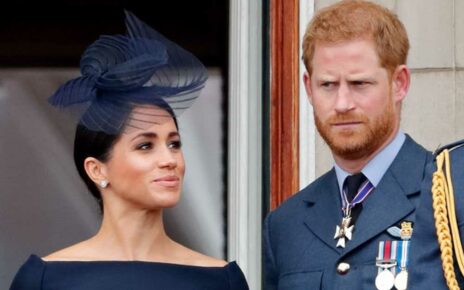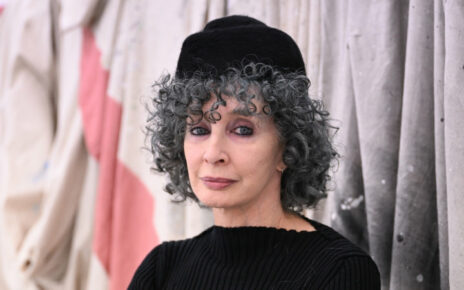By Karl Quinn
Dobe Newton (left) and Roger Corbett, aka The Bushwhackers, perform on The Voice, and land a spot on Jessica Mauboy’s team.Credit: Seven
Save articles for later
Add articles to your saved list and come back to them any time.
When the producers of The Voice asked The Bushwackers to come on the show and perform I Am Australian as their audition song, the first reaction of frontman Dobe Newton was to say no.
“We haven’t been great fans of the show,” says the 75-year-old singer, songwriter and lagerphone player, who has been performing with the folk-country act since the late 1970s. “We said, ‘isn’t it for emerging new talent?’ But they said, ‘no, it’s for all voices, all abilities, all ages. At least meet with us’. So we did, we said, ‘OK we’ll do it’, and we had a bloody amazing time.”
As it happened, their performance of the song often dubbed Australia’s unofficial national anthem coincided with the launch of the referendum campaign – and inadvertently played right into the stark divisions that have arisen around it.
It was Newton’s musical partner Roger Corbett, a member of The Bushwackers since the early 1980s (more than 90 musicians have passed through the line-up over the years, but these two have remained constants), who first sensed there was more at stake with the invitation to perform than simply trying to win a place in the final 24 (a goal in which they succeeded when Jessica Mauboy, who performed with the band at the Tamworth Music Festival when she was aged 14, instantly recognised their voices and selected them for her team).
For starters, it was a chance to remind people that Newton was a co-writer of the song that is more often than not attributed solely to Bruce Woodley of The Seekers.
Newton’s involvement came about in 1987, when Woodley asked The Bushwackers to be his backing band on a solo album of folk music. He had a long list of traditional songs he wanted to record, and a few originals, not all of them finished – including what would go on to be one of the most frequently performed songs in the country.
“He had a melody and a chorus and some words for the verses of this song called I Am Australian,” Newton recalls. “And he said to me, ‘You know a lot about Australian history, will you have a look at the verses and help complete the song’, which is what I did. Then The Seekers came back on the road, started performing it, and it became increasingly popular.”
So popular, in fact, that in a 2015 court case in which Woodley and A Pocketful of Tunes, the company that owns the copyright in the song (and of which Woodley is a director, alongside Melbourne accountant Peter Sutton), sued the Commonwealth over its use in a DVD made for council citizenship ceremonies, it was asserted that I Am Australian brought in around $350,000 a year in royalties.
Bruce Woodley, third from left, with Athol Guy, the late Judith Durham and Bruce Potger, in September 2013 at an event to mark the 50th anniversary of The Seekers.Credit: Pat Scala
“When the song’s used in its entirety, I get 25 per cent,” says Newton. “But when it’s just the chorus and melody, I get nothing. That’s why I’m talking to you from Melbourne, not Majorca.”
Over the years, the song has been licensed for use in ads for shopping centres, Holden cars, and Queensland Rail, among others. In 1999, it was used by the federal government in the TV advertising campaign for the republic referendum.
By a strange quirk of fate, The Bushwackers’ performance of I Am Australian on The Voice landed right in the middle of campaigning for the Voice referendum.
And while their performance had been recorded back in May, Newton had made public just weeks before it aired that he thought it would be a great thing if the Yes campaign adopted the song for this referendum too.
Newton made his thoughts known on ABC Radio Melbourne on August 8, when he called in to Rafael Epstein’s Drive show. “Music needs to say something and it needs to have a message,” he said. Noting that the debate had become “outrageously politicised” when at heart it was a simple matter of recognition, he added, “I would happily nail my colours to the mast and say let’s get that sorted, and then we can work out the rest”.
He wasn’t alone in thinking that. Newton had been contacted by a former record label boss and producer making the same point. “He said, ‘I’ve been speaking to a couple of our pals [from the industry], and we think it’s time to make an emotional connection’,” Newton recalls.
The Bushwackers in 1982: (l-r) Roger Corbett, Louis McManus, Eddy Van Roosendael, Dobe Newton and Michael Harris.
(Contacted by this masthead, the industry veteran confirms the account, but declines to be named on account of the “most dreadful things” being said online by opponents of the Voice about public figures expressing support for it.)
As the minority author, Newton’s power to make the song available was limited. He needed former advertising man Woodley to sign off.
Woodley has spoken in the past of the special significance of the opening lines of the song, which speak directly of the status of Aboriginal people as the first inhabitants of this land.
“I come from the Dreamtime, from the dusty red soil plains
I am the ancient heart, the keeper of the flame
I stood upon the rocky shores
I watched the tall ships come
For 40,000 years I’ve been
The first Australian”
“This has proven to be a very important beginning and verse to the song because it’s been embraced by most Indigenous people of Australia, who relate to those words,” he said in a video posted to YouTube 11 years ago. “In fact a few years ago I had the privilege of singing this song with Manduwuy Yunipingu from Yothu Yindi … and he sang that first verse in his own pitjantjatjara language.”
But when Newton passed on a formal proposal (“a terrific spiel”, he says) to Woodley, “Bruce just came back and said simply ‘no’. So it just didn’t go anywhere else after that.”
Woodley declined to comment for this story.
History will record that John Farnham’s recording of You’re The Voice became the soundtrack to the Yes campaign in this referendum.
And despite his disappointment, Newton has to admit that the fit between I Am Australian and the argument in favour of The Voice to Parliament might not be quite as tight as he’d imagined.
“It’s been really fascinating reading through some of the comments after The Voice, because there are a whole lot of people going, ‘This should be our national anthem, this should be used for the Yes campaign’. But then there’s a whole lot of other people going, ‘we are one, we are Australian, let’s not be divisive; this should be used for the no campaign’. So I sit there going, ‘Oh, holy shit’.
“It’s not like there have been a huge number of those,” Newton adds, “but just enough for me to think isn’t that interesting how people have taken that particular ‘this will divide the nation’ line.”
Contact the author at [email protected], follow him on Facebook at karlquinnjournalist and on Twitter @karlkwin, and read more of his work here.
Find out the next TV, streaming series and movies to add to your must-sees. Get The Watchlist delivered every Thursday.
Most Viewed in Culture
Source: Read Full Article





